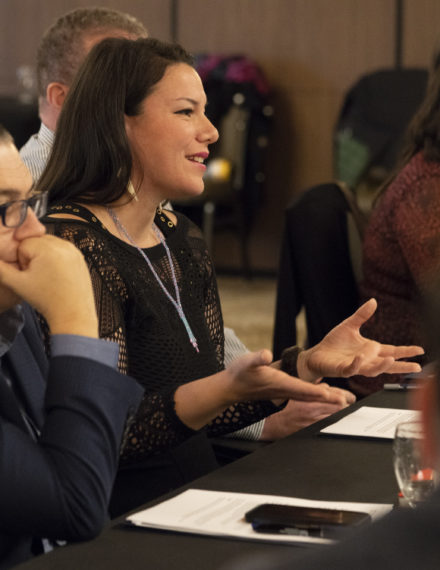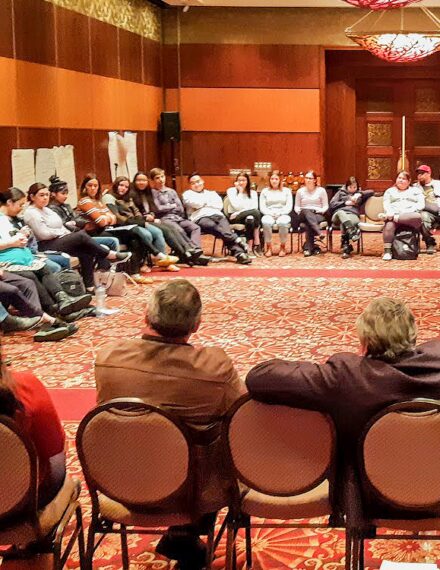
In March, The Gordon Foundation partnered with Nunavut Sivuniksavut (NS) to host a Treaty Simulation in Ottawa. NS is a unique post-secondary program designed to empower Inuit youth. Nunavut Sivuniksavut is characterized as a silattuqsarvik (‘a place and time to become wise’ in Inuktut). NS is dedicated to providing Inuit youth with the best possible post-secondary academic and cultural learning experiences. Throughout the length of the program, students participate in activities designed to support the development of a vital set of knowledge, skills, and positive attitudes that will allow them to successfully contribute to the world as young adults.
Treaties, also referred to as Land Claims Agreements, are a significant part of our history, present and future, and learning about them is a key part of the Truth and Reconciliation Commission of Canada: Calls to Action. Treaty Simulations offer a hands-on learning experience for participants to learn practical negotiation skills from expert advisors.
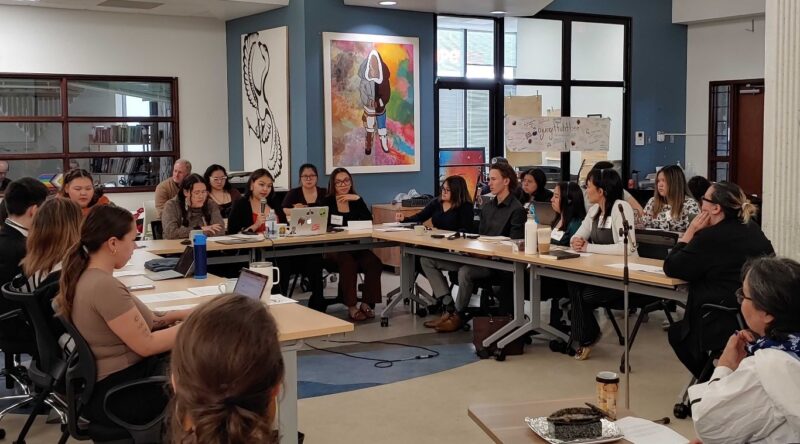
NS students negotiate a fictional Nunavut Inuit Housing Action Plan.
The students chose to focus the Treaty Simulation on housing issues in Nunavut. Participants were split into three teams representing Nunavut Tunngavik Inc., the Government of Nunavut, and the Government of Canada. Throughout the week students created proposals and then negotiated a fictional Nunavut Inuit Housing Action Plan.
The students learned from some fantastic advisors throughout the event, including Stephen Van Dine (Arctic Unlimited), Katherine Minich (Carleton University), Donovon Gordon-Tootoo (Inuit Tapiriit Kanatami) and elder Meeka Kakudluk.
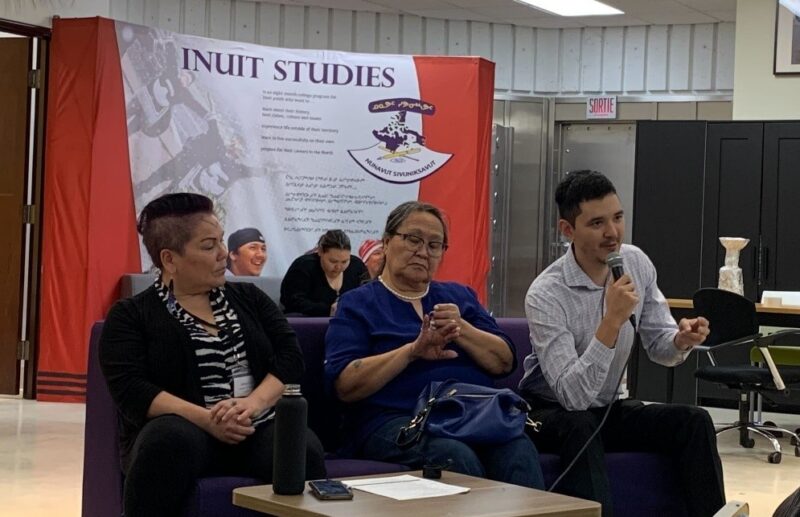
Left to right: Selma Ford (The Gordon Foundation), Inuit Elder Meeka Kakudluk, and Donovan Gordon-Tootoo (Inuit Tapiriit Kanatami) teaching students about how to negotiate Land Claims Agreements.
The students’ passion and energy shone throughout the Treaty Simulation. Using both research and their personal life experiences, the students brainstormed ideas to help alleviate the housing crisis in Nunavut.
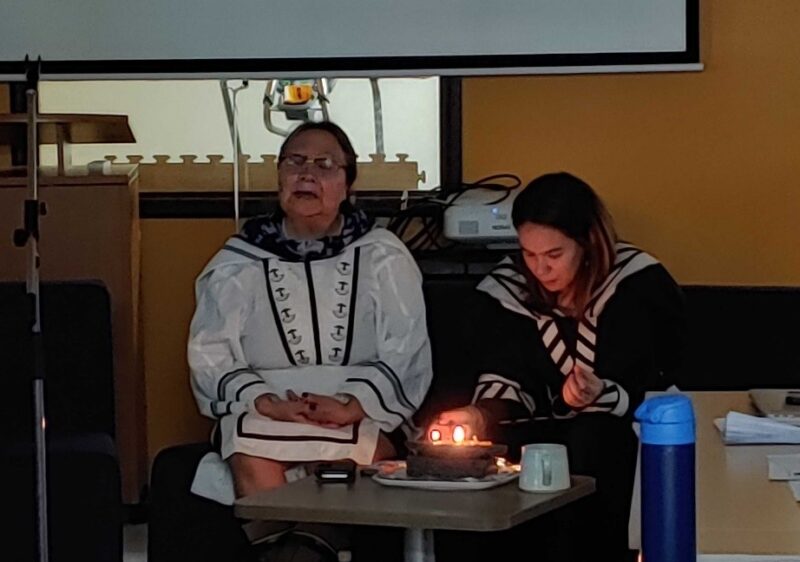
The simulation was opened by Inuit Elder Meeka Kakudluk, who lit the Qulliq, a traditional oil lamp.
On the third day, students sat down at the negotiation table. The negotiation was opened by Inuit Elder Meeka Kakudluk, who lit the qulliq, a traditional oil lamp which has significant cultural meaning for Inuit. Traditionally, for Inuit the qulliq was not only the main source of light during the winter months but was also used to cook, melt ice, and dry clothing over. It allowed Inuit to survive in a cold, harsh environment. Today, the qulliq also serves a ceremonial purpose, symbolizing tradition and the strength of Inuit women, who traditionally tended to the qulliq.
It was also very exciting to have simultaneous interpretation available in Inuktitut for the first time during the last day of the simulation.
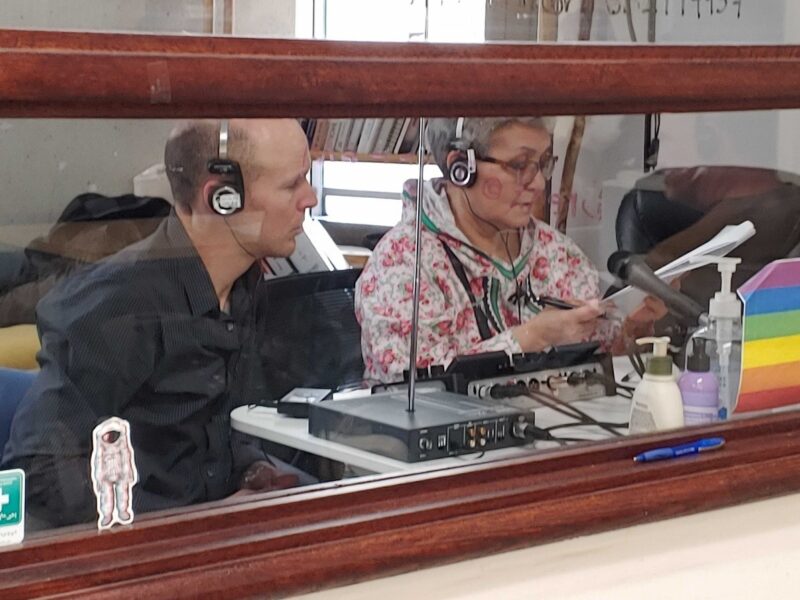
Negotiations were available in both Inuktitut and English thanks to simultaneous interpretation technology.
The Treaty Simulation was a fantastic event filled with learning opportunities and new connections. Thank you to all of the participants for their enthusiasm and passion throughout the week and to Nunavut Sivuniksavut for welcoming us so warmly. We look forward to doing this again next year!

